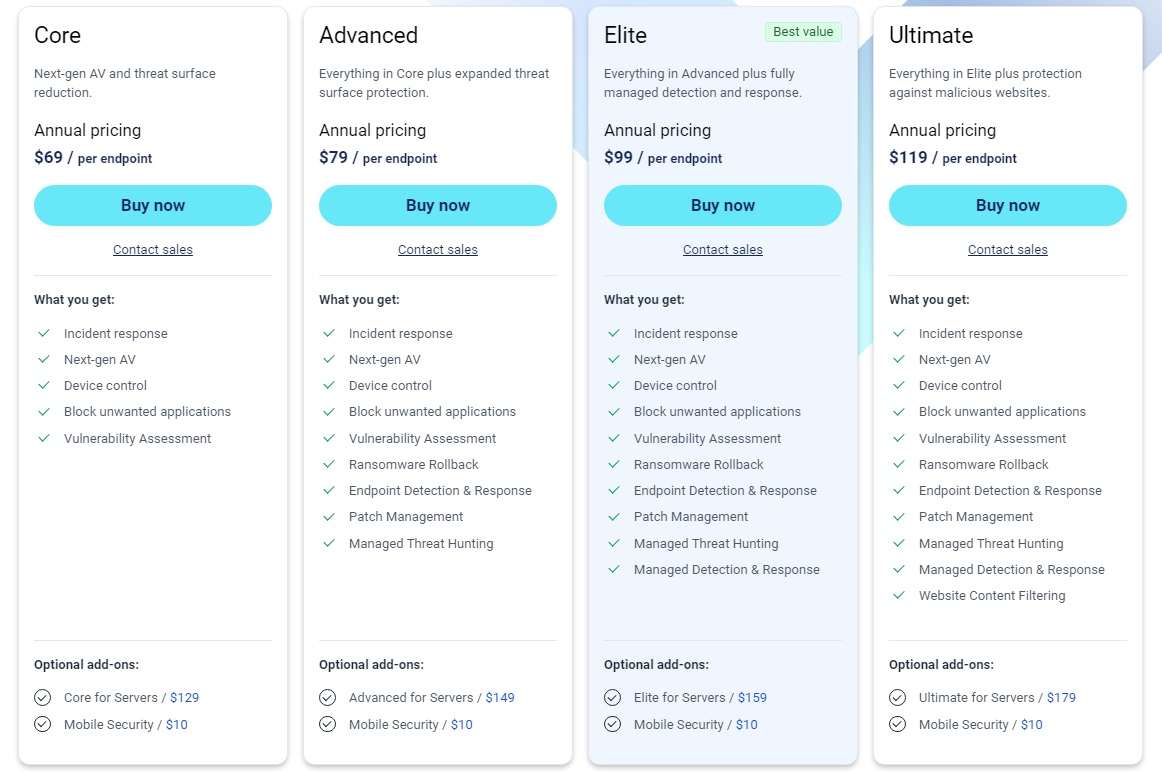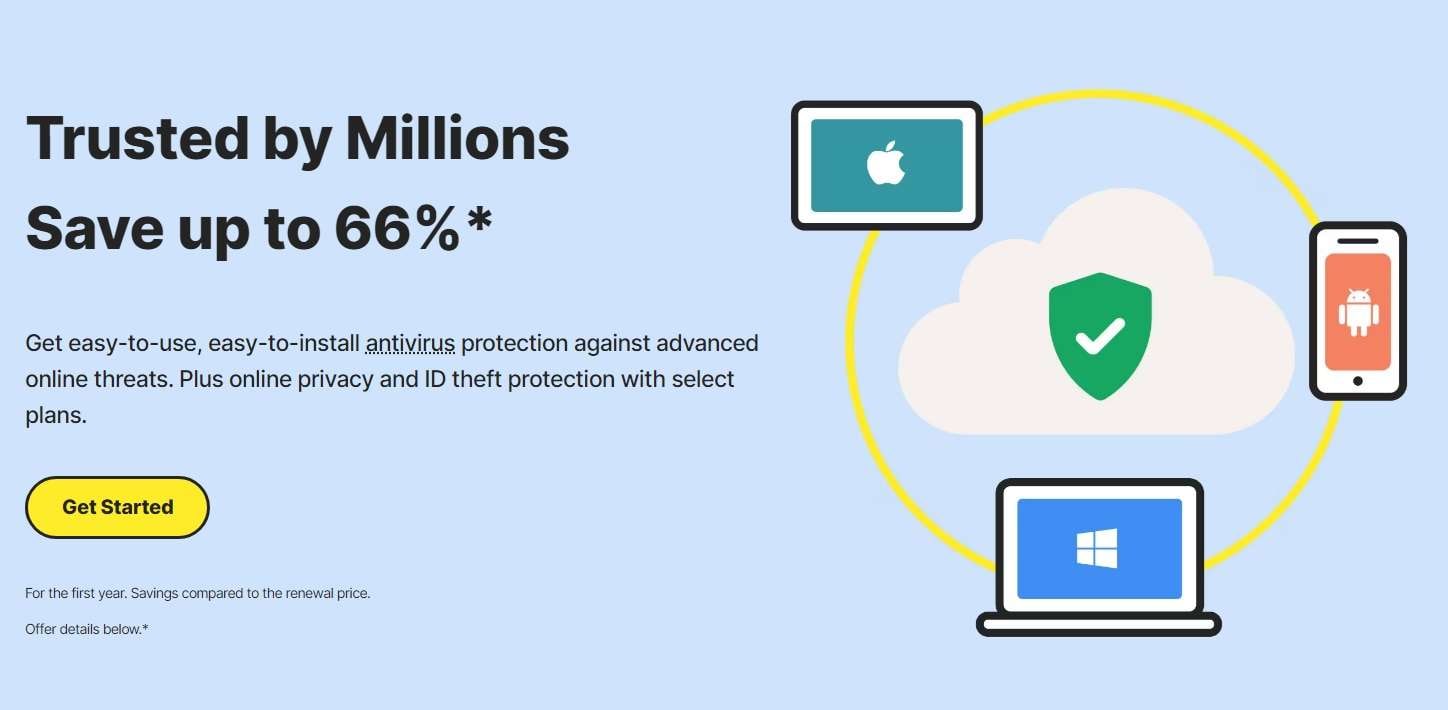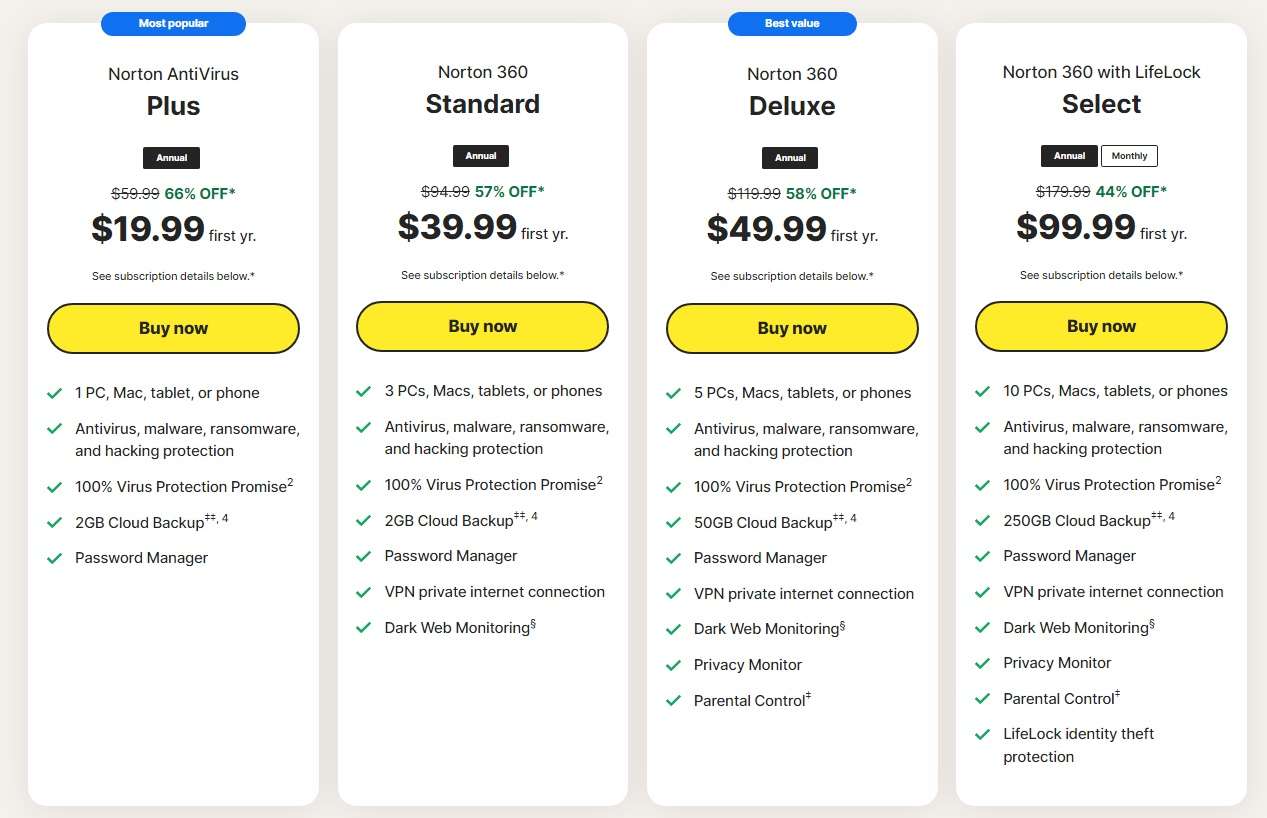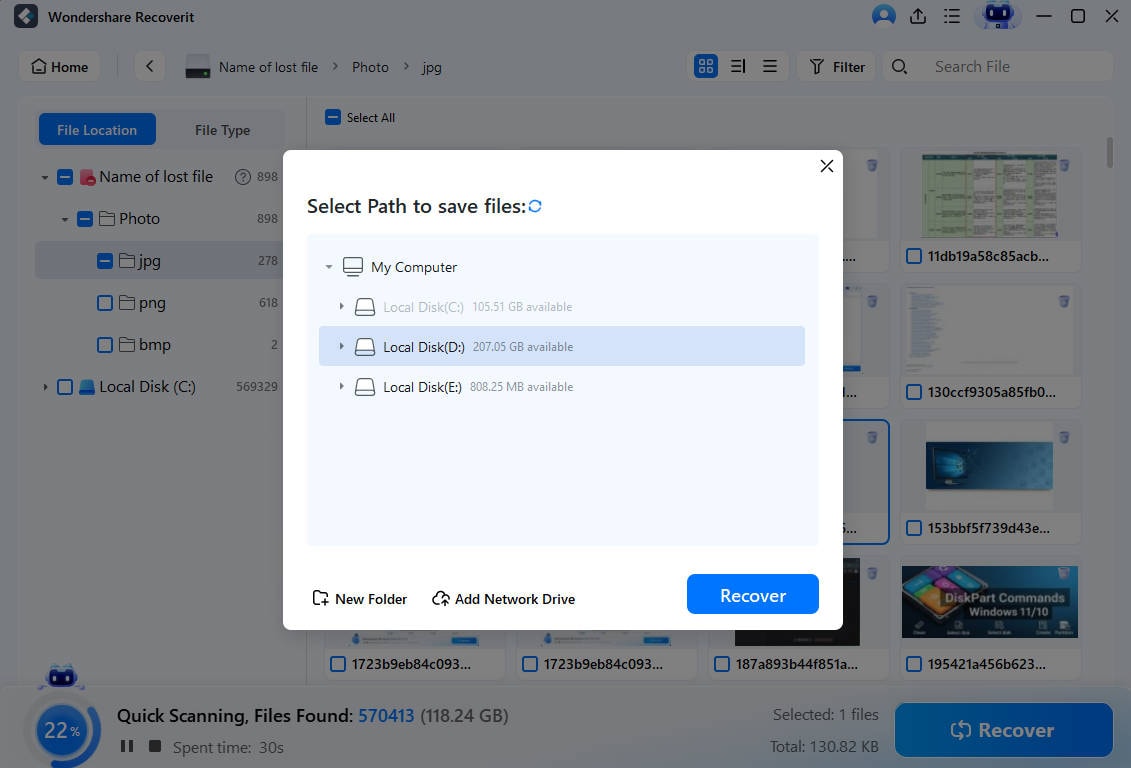The more time you spend on your PC, the more you realize how much malicious software exists out there, waiting for your system to become vulnerable so it can attack it.
Whether it's through downloading, transferring data over a USB, or just browsing the internet, there is always a lingering feeling that your PC is at risk.
To ensure there are no threats to worry about, you install antimalware software. What is antimalware exactly, how does it work, and what benefits can it bring? This guide will give you answers in detail.
In this article
What Is Antimalware?
Antimalware means a software designed to keep your PC safe from malware. It prevents harmful software from infiltrating your computer and compromising data by identifying and removing potential threats.
Regarding PC security, antimalware is the primary defense against malicious software.
Types of Antimalware
After knowing the definition of antimalware, let's dive into its different types. As many types of malware exist in all kinds of shapes and sizes, many antimalware tools are constantly developing to guard your PC from unwanted intruders. Here are some of them.
Antivirus Software
Even though many use the two terms interchangeably, malware and viruses differ.
What viruses mainly do, as opposed to other types of malware, is that they multiply. A virus activates through user interaction with infected files and begins to replicate in other documents and partitions.
Antivirus software aims to identify and remove viruses, often using signature-based malware detection.
Anti-Trojan Software
As the name suggests, Trojans are programs that differ from how they appear. They disguise themselves as something else when they are malicious programs.

Anti-trojan software is specifically designed to target this threat.
Anti-Spyware
Another type of antimalware with a distinct and intuitive name is anti-spyware. Spyware is harmful software that, so to say, "spies" on you. It collects data and information about your digital activity without your awareness or consent.
Anti-spyware aims to identify and remove spyware.
Anti-Ransomware
Unlike the previous antimalware, anti-ransomware tools protect you from a slightly different threat. What does ransomware do exactly?
Ransomware is malicious software that encrypts your files, leaving your data inaccessible. It does so by changing the original file format from readable to inaccessible to anyone but the one performing the encryption.
Anti-ransomware detects these programs and blocks them to the best of its ability.
Firewalls
Although firewalls wouldn't necessarily fall into the category of antimalware, they also perform a critical function.
As the name implies, firewalls are walls or barriers between your PC and programs with unauthorized access trying to invade your digital space. They are network security devices in charge of incoming and outgoing traffic.
How Antimalware Software Works
To better understand antimalware software, it is crucial to know how it works.
Antimalware software must use different techniques to detect and prevent potential threats to your PC. It does so in the following ways.
Heuristics
The word heuristics might sound confusing, but it's simple. Malware heuristics help recognize suspicious behavior of files and programs within your PC.Using its knowledge of malicious programs' and files' behavioral patterns, it detects when something's wrong and alerts you.
Signature-Based Malware Detection
Signature-based malware detection works differently from Heuristics. Every strain of malware is defined through its unique signature. These signatures are collected in databases to which signature-based malware detection software has access.
The software compares programs and files with the database to determine whether or not you are dealing with malicious threats. Although helpful, the downside of this malware detection is that it only deals with known malware and may be unable to recognize new, recently developed harmful software.
Behavior-Based Malware Detection
Contrary to the previous method, behavior-based malware detection follows the behavior of programs and does not scan and compare malware signatures.
It's excellent at identifying new and unknown threats. For instance, if a program tries to modify your system files, this malware detection will find that behavior unusual and label it as a threat to your PC.
Malware Isolation and Sandboxing
Compared to previous detection approaches, isolating and sandboxing is a unique way of protecting your PC.
Sandboxing refers to placing suspicious files in an isolated digital environment, a.k.a. a sandbox. It's like a separate operating system within your system. Isolated from the rest of your files and data, the antimalware can observe the behavior of the program in question within the sandbox. If the program exhibits malicious behavior, it does so in an area where it can't harm your PC, enabling your malware detection software to recognize it as a threat.
Malware Removal
Once it identifies malicious files, your antimalware software takes the necessary steps to prevent the malware from damaging your PC.
It may isolate the infected files from the rest of the system to prevent them from spreading or harming your system further.
It often performs a cleanup, trying to repair the files that malicious software affected. If fixing the infected files isn't possible, the antimalware will likely delete them.
Benefits of Using Antimalware Programs
By now, you probably realize how crucial it is to use adequate antimalware programs. There is no downside to having them, and the benefits are infinite.
Antimalware programs protect your PC from numerous threats, meaning all kinds of malware. Whether it's a typical virus or a Trojan, your antimalware program works hard to protect you from malice attempting to invade your PC.

In addition, it prevents data loss or theft. While you hold some files dear due to personal use and sentiment, other data you possess is crucial for your business or finances. When malware attacks these files, you risk losing so much. That's why having antimalware software to protect your data is paramount.
However, the benefits don't stop there. Antimalware software enables a safe browsing experience, blocking malicious websites and online threats. By isolating malware, antimalware software ensures your PC is up to speed and performing efficiently.
Maybe the most notable benefit of antimalware, at least on a personal level, is the peace of mind it offers. Not having to constantly worry or fear for your digital safety is an undeniable relief, which you can obtain by installing reliable antimalware software.
The Main Features to Look for in Antimalware Software
The primary feature to look for when choosing antimalware software should be its effectiveness in detecting and removing threats.
These are the two critical actions antimalware should perform, and they depend on whether the software has the following:
- Comprehensive malware protection to defend your system against various kinds of malware;
- Real-time protection to actively look for malicious files on your PC;
- Behavioral analysis or heuristics to detect malware focusing on behavioral patterns;
- Regular updates to keep up to speed with the latest threats;
- Low false positive rate, meaning it does not falsely flag files as infected or unnecessarily delete them;
- Automatic isolation and removal, taking action automatically and responding quickly.
Top 3 AntiMalware Software
Malwarebytes
Also known as MBAM, Malwarebytes is a reputable antimalware software. It distinguishes itself by being extremely efficient and effective when detecting and removing various types of malware, such as spyware, ransomware, and others. In addition, it has a very user-friendly interface, making it easy to manage and operate by just about anyone. This tool is available for Microsoft Windows, macOS, ChromeOS, AndroidOS and iOS.
Another great thing about Malwarebytes is its regular updates, which improve the software and allow it to better identify potential new threats. However, users have on occasion reported that their systems would slow down when performing full scans, although that is to be expected with most any antimalware software.
In terms of the pricing plan, Malwarebytes has both free and paid versions, but the downside to the free version is that it doesn't offer real-time protection. There are various paid versions you can choose from, each offering different tools and showcasing different capabilities of Malwarebytes.

Norton Antivirus
A tried and true antimalware software you should try is Norton Antivirus. Although the name suggests that it primarily deals with viruses, Norton Antivirus also offers protection against other types of malware.
Through the use of signatures and heuristics, it can identify malicious software attempting to gain access to your PC. Moreover, the interface is pretty intuitive and easy to use. It has been a household name for over three decades now and has withstood the test of time.

When it comes to prices, Norton Antivirus has a paid version and a free trial version. You can download it for free with some features, such as the privacy scan, anti-tracking scan and email leak scan. The paid version is pricier than its competitors, but the first year of the subscription is sold at a discounted price.

Bitdefender
The last, but by no means the least antimalware software you should consider is Bitdefender. With a legacy of over two decades and many satisfied users, Bitdefender is no surprise that it remains one of the top contenders in protection against malware.
Relying on both heuristics and signature-based detection, it ensures you stay protected against a wide variety of threats. Its great track record, paired with its convenient and simple interface, make it an excellent choice for the safeguarding of your computer.
Although some users reported the interface to be somewhat intrusive and the pricing a bit high, it is still worth checking out.

Can Antimalware Prevent Data Loss?
Considering all the features above, it is evident that antimalware can indeed prevent data loss. It protects your critical files by responding quickly and appropriately.
However, no matter how advanced antimalware software is, there is always a risk that only some of your files will stay safe. Even behavior-based malware detection can be ineffective against refined, newly developed malware.
If the software can't fix the files and must delete them, you lose some data at the price of keeping the rest of your system safe.
Luckily, that doesn't have to be the case. By ensuring you have an effective and reliable data recovery program and antimalware software, you will have maximum protection for your PC.
One easy-to-use and reliable data recovery solution is Wondershare Recoverit. With a user-friendly interface, it supports the recovery of various files and ensures that retrieving your files is a piece of cake.
How do you use Wondershare Recoverit? It's quite simple:
- Launch the program and select Hard Drives and Locations.

- Select a hard drive where you would like to retrieve the lost data and press Start to begin scanning
- Wait for Wondershare Recoverit to complete the scan. If you have large files or lots of them, the scan might take some time.

- Once the scan is complete, select the files you'd like to retrieve, click on Recover, and choose where you want to save them.

As you can see, there's no need to spend hours on end worrying about how to undo data loss when there's a tool like Wondershare Recoverit to help you.
Conclusion
It is obvious why antimalware software should be an integral part of every PC. It protects your digital environment, offering layers of defense against all cyber threats. Such software also implements various malware detection methods and strategies, from signature-based detection to isolation and sandboxing.
The best way to ensure your system is safe is to use reliable antimalware software and additional programs and tools that let you undo any potential data loss, such as Wondershare Recoverit.
FAQ
What is the best antimalware software I can use?
Many antimalware tools exist, but the most prominent and reliable include Malwarebytes, Bitdefender, Norton, Kaspersky and Avast.Is Windows Defender antimalware software?
Windows Defender is antivirus software and a built-in component of Microsoft Windows. Although it's a solid antivirus program, we recommend installing third-party antimalware since it's more likely to discover threats that Windows Defender might miss.What is the difference between antivirus and antimalware?
To understand the difference between an antivirus and antimalware, it's important to first understand the differences between viruses and malware. A virus is a specific malware program, with its defining attribute being its ability to replicate. Malware, on the other hand, is a term that encapsulates a wider range of threats. It's best to explain it through a simple analogy – all viruses are malware, but not all malware is a virus.
It follows that an antivirus is a program that protects you against viruses, trojans, and worms. As opposed to an antivirus, an antimalware program keeps you safe from various types of malicious malware, such as spyware, ransomware, adware, etc. In addition, it also updates faster than an antivirus, enabling it to detect newly developed malware.




